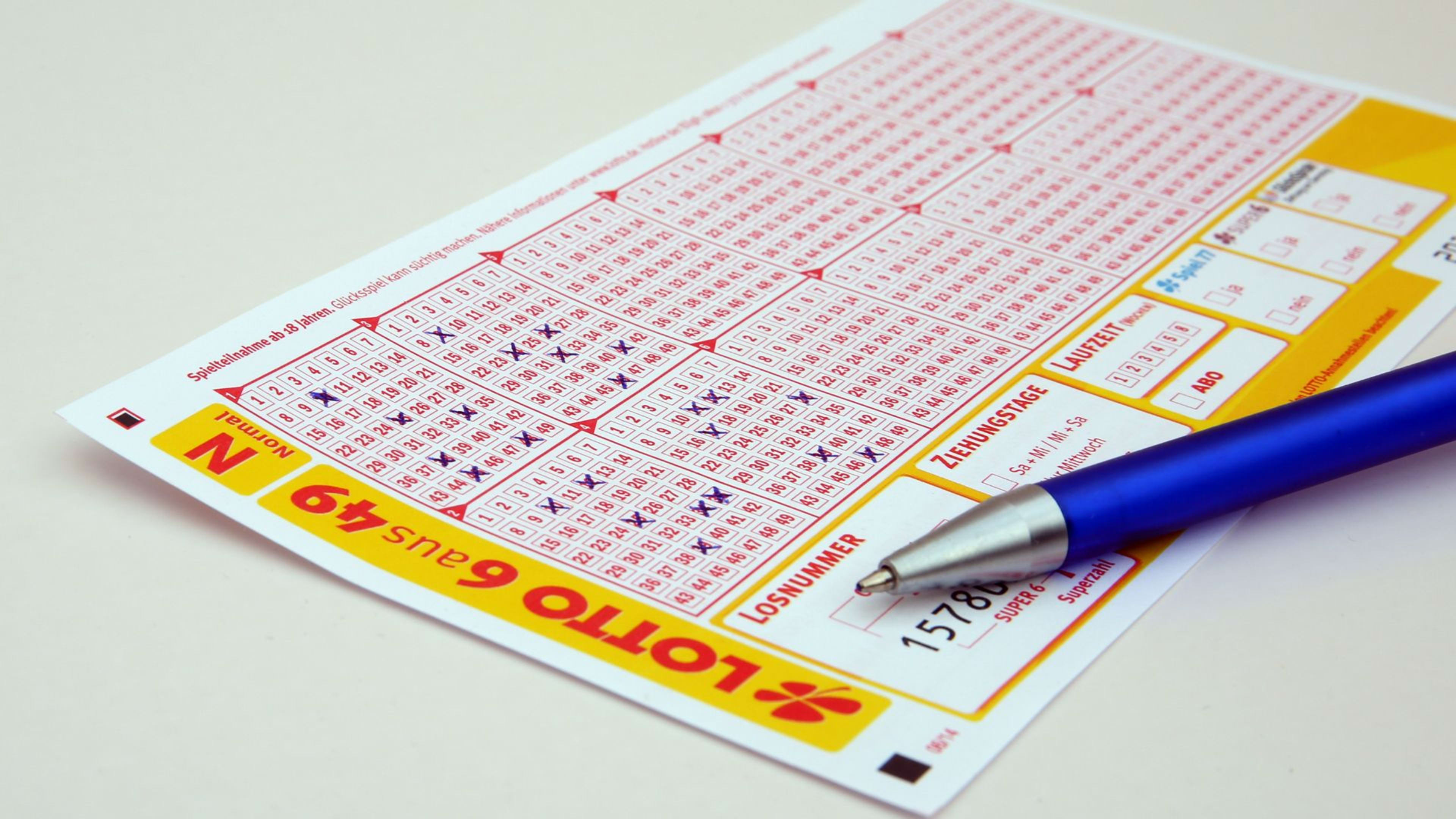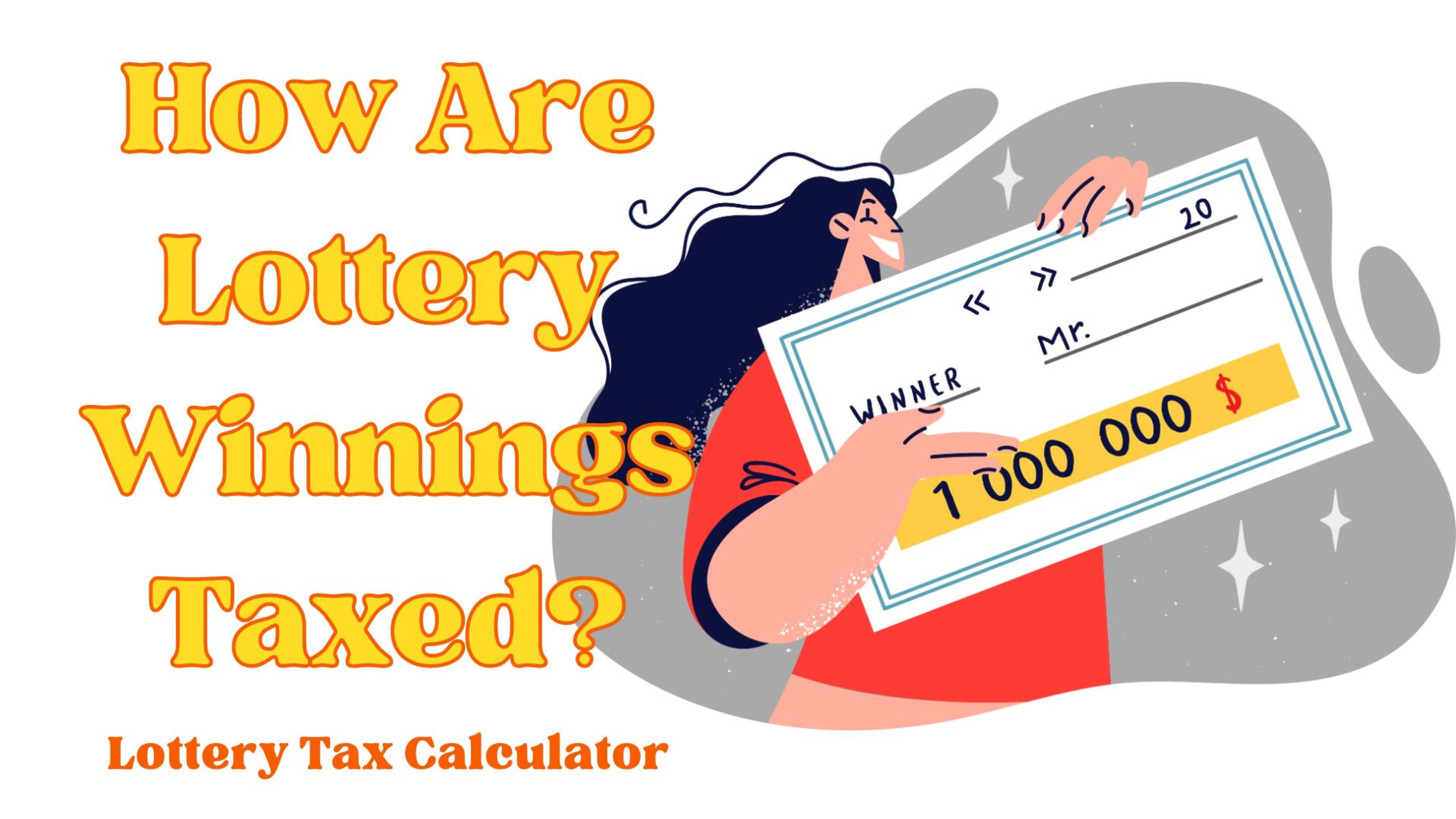Dreaming about winning the lottery often involves visions of yachts, mansions, and endless vacations. But the tax man is also waiting in the wings to take his share. This article aims to demystify the tax obligations associated with lottery winnings in various countries, focusing on how these apply to players, including opportunities in Zimbabwe. We'll break down what percentage of your winnings you can expect to part with, offering examples to make things crystal clear.
Understanding Lottery Taxes for Zimbabwe Players
In simple terms, when you win the lottery, the government takes a share of your winnings in the form of taxes. Globally, tax rules vary significantly. For Zimbabwe, it's crucial to understand these implications for any winnings, whether from local lotteries or international jackpots accessed by players in Zimbabwe.
General Principles of Lottery Taxation
Globally, governments often tax lottery winnings. The approach taken can range from a flat percentage to progressive rates, and some jurisdictions exempt smaller winnings. Understanding these principles helps players in Zimbabwe anticipate potential deductions from large wins.
For example, while a US citizen might face a 24% federal tax on winnings, a player in Zimbabwe accessing an international lottery would need to investigate the specific tax laws of both their location and the lottery's origin. Some countries may tax non-residents, while others do not.
Considering Your Jurisdiction
The most critical factor for a player in Zimbabwe is your local tax legislation. Zimbabwe's tax laws, administered by the Zimbabwe Revenue Authority (ZIMRA), typically focus on income earned within the country. However, specific regulations regarding lottery winnings, especially from international sources, should be verified. Some countries exempt lottery winnings from tax, while others treat them as income. For instance, in some jurisdictions, winnings from gambling activities are taxed at a specific rate, often ranging from a small percentage to higher figures, depending on the amount.
Receiving Your Winnings: Lump Sum or Annuity
Winners often have two ways to collect their prize: a one-time lump sum or in installments over several years, known as an annuity. Both methods can have different tax implications.
- Lump Sum: If you choose the lump sum, you receive your winnings immediately, but it’s often a smaller amount than the total jackpot. You might pay taxes on the full amount received in that tax year, potentially affecting your overall tax bracket.
- Annuity: If you opt for the annuity, your winnings are distributed over several years. Each year, you pay taxes on the amount you receive. This can sometimes lead to a lower overall tax burden if the annual payments don't push you into a significantly higher tax bracket.
Example: Imagine a hypothetical lottery win of $1,000,000, and assume a simplified scenario where tax is applied. For illustration, let's consider potential tax structures without specifying Zimbabwe's exact lottery tax rate, as this can be complex and subject to change.
| Lump Sum Option: | Annuity Option: |
| Hypothetical Lump Sum Received: $1,000,000 | Hypothetical Annual Annuity Payment: $1,000,000 / 30 years = $33,333.33 |
| Hypothetical Tax (24%): $240,000 | Hypothetical Federal Tax (24%): $33,333.33 * 24% = $8,000 |
| Hypothetical State Tax (5%): $50,000 | Hypothetical State Tax (5%): $33,333.33 * 5% = $1,667 |
| Hypothetical Total Taxes: $290,000 | Hypothetical Total Taxes per Year: $8,000 + $1,667 = $9,667 |
| Hypothetical Total Taxes over 30 Years: $9,667 * 30 = $290,010 | |
| Hypothetical Net Amount Received: $710,000 | Hypothetical Net Amount Received over 30 Years: $1,000,000 - $290,010 = $709,990 |
This comparison illustrates how payout structures can affect the net amount received over time, but it's crucial to remember these are simplified examples. Actual tax liabilities depend on real-time tax laws.
It's vital to note that the examples use simplified tax rates and calculations for illustration. Real-world tax rates can vary significantly, and additional factors like deductions, credits, and evolving tax legislation can impact your final tax liability. For players in Zimbabwe, consulting with a qualified tax professional is highly recommended to get accurate advice tailored to your specific circumstances and the jurisdiction from which you receive winnings.
Important Considerations for Lottery Winnings in Zimbabwe
When considering lottery winnings for Zimbabwe players, several key points are essential:
- Local Tax Law is Paramount: Always refer to the latest regulations from ZIMRA. While many countries tax lottery wins, the specifics for Zimbabwe might vary, especially for online or international lottery winnings accessed by players within the country. There's no universal rule, so local guidance is key.
- International Lotteries: If you're participating in lotteries based outside Zimbabwe, understand the tax laws of that country as well. Some countries may have withholding taxes on winnings paid to foreigners. You might also need to declare these winnings as income in Zimbabwe, depending on local tax interpretations.
- Seek Professional Advice: Tax laws can be complex. Consulting a Zimbabwean tax expert is the best way to ensure you comply with all regulations and plan your finances accordingly.
Example: Imagine you won a prize of CNY 100,000. Here's how you'd calculate your after-tax amount:
- Tax-free amount: CNY 10,000 (because it's below the threshold)
- Taxable amount: CNY 90,000 (the rest of your winnings)
- Tax on CNY 90,000: 20% of CNY 90,000 = CNY 18,000
So, from your CNY 100,000 winnings, you'd take home CNY 82,000 after the tax deduction.

Types of Lotteries and Taxation in Japan
In Japan, there are different types of lotteries, including the Takarakuji and Numbers lotteries. The taxation rules can vary based on the type of lottery and the amount of winnings.
Takarakuji Lotteries: These are the most common lotteries in Japan, known for their big jackpots. When you win in a Takarakuji lottery, your winnings are generally subject to two types of taxes: income tax and local inhabitant's tax.
- Income Tax: The income tax on your winnings is calculated based on a progressive tax rate. This means that the more you win, the higher the percentage of tax you'll need to pay. The tax rate can range from around 5% to 45%, depending on the amount of your winnings.
- Local Inhabitant's Tax: In addition to income tax, you may need to pay local inhabitant's tax, which is determined by your municipality. This tax is calculated based on your income, including your lottery winnings, and the rates can vary from one area to another.
Numbers Lotteries: Numbers lotteries are another form of lottery in Japan, focusing on number-based games. Winnings from Numbers lotteries are generally subject to a flat withholding tax rate of about 20.315%. This tax is deducted from your winnings before you receive the payout.
Example 1: Let's say you win ¥1,000,000 in a Takarakuji lottery. The income tax rate for this amount falls within the 10% bracket. This means you would owe ¥100,000 in income tax. Additionally, if your local inhabitant's tax rate is 5%, you would owe ¥50,000 for this tax. So, your total tax obligation would be ¥150,000.
Example 2: Imagine you win ¥500,000 in a Numbers lottery. The withholding tax rate for Numbers lotteries is around 20.315%. Therefore, the tax deduction from your winnings would be approximately ¥101,575, leaving you with a net payout of ¥398,425.
Taxes on Lottery Prizes in Spain
In Spain, lottery winnings are considered income. This means that the government will take a piece of your winnings as tax. How much tax you pay depends on how much you win. Starting January 1, 2020, any lottery win over €40,000 is subject to a tax rate of 20%.
Example: Imagine you win €100,000. The first €40,000 is tax-free, but you'll have to pay 20% tax on the remaining €60,000.
Here’s the math:
- €100,000 (Total Winnings) - €40,000 (Tax-Free Amount) = €60,000 (Taxable Amount)
- €60,000 x 0.20 (20% Tax Rate) = €12,000 (Tax Due)
So, if you win €100,000, you would take home €88,000 after taxes.
UK Lottery: The Tax-Free Dream
Here's the fantastic news to start with: In the UK, all lottery winnings are tax-free! This means that whether you win £10 or £10 million, you get to keep every penny. Unlike some countries where large winnings face hefty tax deductions, in the UK, the prize amount announced is the prize amount you get.
Example: Imagine winning £5 million in the National Lottery. In the UK, you get to bank all £5 million without any deductions. Meanwhile, in another country, a 20% tax might reduce your take-home to £4 million. Lucky for UK winners, their prize is untouched!
While the initial winnings are tax-free, it's important to remember that once that money is in your bank account, it doesn’t remain entirely untouched by taxes.
- Interest Income: Let's say you win £1 million and deposit it in a bank account. If your bank gives you 3% interest annually, that’s £30,000 extra in a year. This interest will be taxed as per your income tax slab.
- Gifts: If you decide to share your joy and give away a portion of your winnings to friends or family, it could potentially attract inheritance tax if it's above the threshold, and you pass away within seven years of gifting the money.
- Investment Income: If you invest your winnings, any profit or income generated from those investments is likely to be subject to tax. If you invest in a property and then rent it out, the rent you receive will be taxable income.

Do You Pay Taxes on Lottery Winnings in Canada?
In Canada, lottery winnings are not considered regular income, so they are not taxed like your job’s salary would be. Instead, they're seen as a windfall or a one-time gain. That's good news for winners, as they get to pocket the full amount they win.
Example: Imagine you win $1 million in a Canadian lottery. Unlike some countries where you might only get, say, $600,000 after taxes, in Canada, you get the whole $1 million. The entire amount is yours to keep!
So, No Taxes At All?
Well, it's not quite that straightforward. While you don't pay taxes on the actual winnings, any interest or income generated by those winnings in the future is taxable. Think of it like this: the initial money you win is tax-free, but the money that money makes isn’t.
Example: You decide to put your $1 million lottery winnings in a savings account that earns interest. At the end of the year, let’s say you earn $10,000 in interest. That $10,000 is taxable, and you will need to report it on your yearly income tax return.
Winning the lottery is a dream for many, but it’s essential to understand the tax implications that come with it. Both federal and state taxes will take a chunk of your winnings, and you’ll need to decide how you want your payout. While it might seem daunting, with the right knowledge and a little planning, you can navigate these waters with ease and truly enjoy your windfall. And always remember, while it’s tempting to focus on the amount being taken away, you’re still left with a significant amount from your lottery win. Enjoy it responsibly!
FAQ
Do you pay taxes on lottery winnings in the USA?
Yes. In the USA, lottery winnings are subject to both federal and state taxes. For instance, if you win $10 million in a state lottery:
- The federal government could take about 24% ($2.4 million) off the top.
- Depending on the state, an additional state tax might apply, which can range from 0% to more than 8%. For instance, in New York, an additional 8.82% ($882,000) could be deducted.
Are lottery winnings taxable in the UK?
No. In the UK, the full lottery winning amount is tax-free. For example, if you win £5 million in the UK National Lottery, you take home the full £5 million without any deductions.
How are lottery winnings taxed in Spain?
In Spain, winnings above €40,000 are taxed at 20%. So, if you win €1 million in the Spanish lottery, you'd pay tax on €960,000 (€1 million minus the €40,000 exemption), resulting in a tax bill of €192,000.
Are Australian lottery winnings taxable?
No. In Australia, lottery winnings aren't considered income. If you win AUD 3 million in the Australian Powerball, you receive the entire amount without any immediate tax implications.
Do you pay taxes on lottery winnings in Canada?
No. In Canada, lottery winnings are treated as windfalls. Winning CA$5 million in Lotto 6/49 means you get the full CA$5 million. However, interest earned on those winnings is taxable.
How does France tax lottery winnings?
Lottery winnings exceeding €5,000 in France are subject to a 20% tax. So, if you win €500,000, after exempting the first €5,000, you'd pay a tax on €495,000, which amounts to €99,000.
Are Italian lottery prizes taxed?
Yes. In Italy, if your lottery winnings exceed €500, a 20% tax applies. If you win €2 million in the SuperEnalotto, the tax payable would be €400,000, leaving you with €1.6 million.
Is lottery prize money taxable in South Africa?
No. A R20 million win in South Africa's Lotto is completely yours, with no immediate tax deductions. However, interest on the winnings would be taxable.
How are lottery winnings taxed in Brazil?
Brazil imposes a 13.8% tax on lottery winnings. Winning R$10 million in Mega-Sena would result in a tax of R$1.38 million, giving you a net of R$8.62 million.
Are lottery winnings in Germany subject to tax?
No. If you win €4 million in the German Lotto 6aus49, you receive the entire €4 million without any tax deductions.
Are lottery winnings taxable in India?
Yes. In India, lottery winnings are subjected to a flat rate of 30%. Additionally, cess and other surcharges might apply. For instance, if you win ₹10 crore in the Kerala Lottery:
- The tax would amount to ₹3 crore.
- With cess and other surcharges, the effective rate could rise, reducing your take-home amount further.
How does Russia tax lottery winnings?
In Russia, lottery winnings exceeding 4,000 rubles are taxed at 13% for residents and 30% for non-residents. If you win 100 million rubles:
- As a resident, you'd pay 13 million rubles in tax.
- As a non-resident, your tax would be 30 million rubles.
How are lottery winnings treated in Ireland for tax purposes?
In Ireland, lottery winnings are tax-free. So, if you're lucky enough to win €5 million in the Irish Lotto, you take home the entire amount. However, any income derived from the winnings, like interest, will be taxable.
Are Lottery Winnings Taxable in Zimbabwe?
Generally, lottery winnings in Zimbabwe are not subject to income tax. This is because they are typically considered to be capital receipts rather than income. However, it's always best to consult with a tax professional for personalized advice, as tax laws can change.
What happens if I win a large sum in the lottery?
Winning a significant amount can be overwhelming. It's advisable to seek financial advice from a reputable advisor. They can help you manage your winnings, plan for the future, and ensure you understand any potential tax implications related to investment income derived from your winnings.
Are there any exceptions to the tax-free status of lottery winnings?
While the initial lottery win is generally tax-free, any income generated from investing those winnings (e.g., interest from a savings account or rental income from a property purchased with the winnings) is subject to income tax in Zimbabwe. Always keep accurate records and consult with a tax professional.
What if I donate a portion of my lottery winnings to charity?
Donating to registered Public Benefit Organisations (PBOs) in Zimbabwe may offer tax benefits. Consult with a tax advisor to understand the specific rules and regulations regarding charitable donations and how they might apply to your lottery winnings. Ensure the charity is properly registered to qualify for any potential deductions.
Are winnings from online lotteries taxed differently?
The tax treatment for online lottery winnings is generally the same as for traditional lotteries in Zimbabwe. The key factor is whether the winnings are considered a capital receipt. However, it's crucial to ensure that the online lottery is legitimate and complies with Zimbabwean laws to avoid any legal issues.
What are the potential pitfalls of winning the lottery?
While winning the lottery can bring financial freedom, it's essential to manage expectations and avoid common pitfalls. These include overspending, making risky investments without proper advice, and becoming targets for scams or undue pressure from family and friends. Responsible financial planning is crucial.
Should I seek legal advice after winning the lottery?
Consulting with a lawyer is highly recommended, especially if you win a substantial amount. A lawyer can help you understand the legal implications of your winnings, protect your assets, and assist with estate planning to ensure your wealth is managed according to your wishes.
How can I protect my privacy after winning the lottery?
Maintaining your privacy is crucial to avoid unwanted attention. Consider setting up a trust to claim your winnings anonymously, if permitted. Limit the information you share with others and be cautious about social media posts that could reveal your newfound wealth. Professional advisors can also help you manage your public image.
What is the best way to invest my lottery winnings in Zimbabwe?
The best investment strategy depends on your individual circumstances, risk tolerance, and financial goals. Options include real estate, stocks, bonds, and fixed deposits. Diversifying your investments is generally recommended to mitigate risk. Seek advice from a qualified financial advisor who understands the Zimbabwean market.
Are there any responsible gambling resources available in Zimbabwe?
Yes, several resources are available to promote responsible gambling. These include support groups, counselling services, and educational programs. If you or someone you know is struggling with gambling addiction, seek help from these resources to ensure a safe and responsible gaming experience. Remember, gambling should be a form of entertainment, not a source of financial stress.















